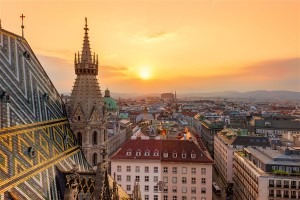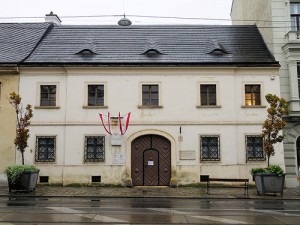
Vienna
Credit: https://lonelyplanetimages.imgix.net/
During my visit I overdosed on Secessionist art, walked the elegant boulevards in glorious and unexpectedly warm early spring sunshine, ate wurst from a stand behind the opera house, drank beer in a bierkeller, visited the (alleged) birthplace of Schubert (a tiny two-room museum with a touching display of mementos including his little round glasses), rode round the Ringstrasse on a retro tram, attended a Sunday morning concert at the Konzerthaus, saw Dürer’s exquisite drawing of the hare, drank coffee at a proper Viennese coffee house, toured Mozart’s house in the old city……
When I returned to London, replete with Weissbier, Mozartkugeln and kasekrainer, I felt that for the five days of my stay in Vienna I had steeped myself in its culture. When I practised music by Schubert I recalled the trip to his birthplace, a short tram ride from Schottenring to an area which was probably countryside in his day. My practising was coloured by recollections of the sounds and sights of Vienna – the noise of people (most obviously around St Stephen’s cathedral), the steady clop of horses’ hooves (you can take a horse-drawn carriage tour of the old city), the rattle and chime of the trams, the timbre and rhythm of conversations in the cafes and bars. I’m a romantic at heart and it meant a lot to me to be able to walk the streets that Mozart, Beethoven and Schubert may have walked before me. When I returned to my piano and my practising, I felt I had a better handle on the music of these great Austrian composers, my understanding of their cultural background and their music deepened by my visit to their city.
Schubert: 4 Impromptus, Op. 90, D. 899
Murray Perahia

Schubert’s house
Credit: https://farm6.staticflickr.com/
Schumann knew this too:
“Relieve the severity of your musical studies by reading poetry. Take lots of walks!”
Beethoven: Symphony No. 6 in F Major, Op. 68, “Pastoral” (Cleveland Orchestra, George Szell)
Allegro ma non troppo




